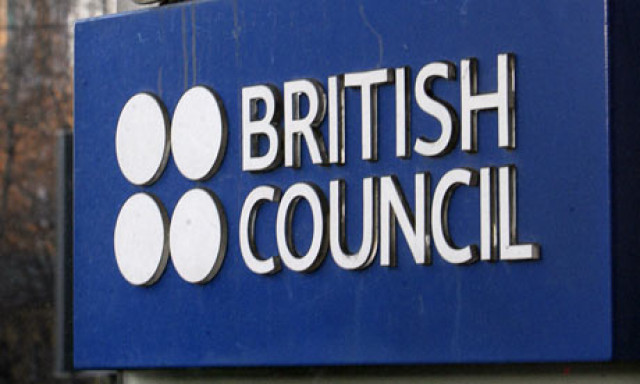British Council among NGOs facing licence cancellation
SECP begins serving notices to 23 aid groups that failed to file audited accounts

SECP begins serving notices to 23 aid groups that failed to file audited accounts. PHOTO: AFP/FILE
The Securities and Exchange Commission of Pakistan (SECP) has started the process of revoking the licences of almost two dozen international non-governmental organisations that have not completed the legal requirement of submitting their audited financial statements to the regulator. The list includes big names such as the British Council and Save the Children.
The process to withdraw the licences of these foreign organisations is part of the government’s larger drive to monitor the work and financing of foreign-funded NGOs. Prime Minister Nawaz Sharif has also stopped the SECP from registering any new INGOs ‘until further orders’.
In total, 33 INGOs are registered with the SECP and of those, 23 are non-compliant, said Secp Chairman Zafar Hijazi on Thursday. He was addressing a news conference to highlight the International Organisation of Securities Commissions’ (IOSCO) recognition of the SECP’s efforts in implementing internationally recognised regulatory standards in Pakistan’s capital markets.

The SECP has served notices to the 23 non-profits and it will take roughly four months to complete the process of revoking the licences of these organisations, said Hijazi. The INGOs are in addition to those foreign organisations currently under scrutiny by the interior ministry.
The government has begun to view international NGOs as a national security threat after it emerged that Shakil Afridi, the doctor who aided the US covert operation to kill Osama bin Laden in Abbottabad in May 2011, attended two workshops on vaccination run by Save the Children.
However, the crackdown against INGOs has run into diplomatic pressure. After the government threatened to expel Save the Children from Pakistan, the British government threatened to sever all aid to Pakistan if the government continued its crackdown against INGOs, prompting the government to grant a six-month extension to all such organisations that meet their regulatory requirements.
As part of the regulatory crackdown against the 23 INGOs, the SECP will freeze their bank accounts, said SECP registrar Mohammad Sadeeq.
However, the NGOs caught up in the current dragnet are not all Western institutions. While some are venerable Western names, such as the British Council, Save the Children, the American Institutes for Research in the Behavioral Sciences, others are not, such as Turkey’s CAG Ogretim Isletmeleal A.S. or the Association of National Development Finance Institutions which is a division of the Jeddah-based Islamic Development Bank.
Other INGOs receiving notices include Education Development Centre, Global Partner, Global Relief Foundation, Goal, HTSPE Ltd, International Relief and Development, Overseas Development Corporation, Pinnacle Education Services, JEN, the International Development Organization, War Child, World Education, HMD International Response, Human Concern International, Al-Ehya Trust and Albion Pakistan.
The SECP registrar said that 643 domestic NGOs were also registered with the SECP and of those, the licenses of 208 local organisations have already been revoked due to non-compliance. The SECP registrar said that in future all the INGOs will be registered by the Interior Ministry, in a sign that the government of Pakistan no longer views international aid organisations as vehicles for financial assistance, but instead as a national security threat.
IOSCO review
Meanwhile, the SECP chairman shared details of the IOSCO review, which found that the SECP has an overall 62% compliance rating with global standards for regulating capital markets. IOSCO acknowledged that Pakistan has made significant strides since the last review of the country’s regulatory structure in 2004, undertaken by the International Monetary Fund and the World Bank, as part of their Financial Sector Assessment Programme.
The review assessed Pakistan against IOSCO principles and declared SECP fully compliant on 13 principles, broadly compliant on 10 principles, partially compliant on 9 principles, and non-compliant only in five principles.
The successful review may help the SECP’s bid to get Pakistan recategorised as an ‘emerging market’ from its current status as a ‘frontier market’ by MSCI, a global financial indices and research provider. Pakistan was downgraded by MSCI from emerging to frontier status in 2008 when, in response to the market collapse, the SECP shut down the Karachi Stock Exchange for nearly three months.
Published in The Express Tribune, July 31st, 2015.



















COMMENTS
Comments are moderated and generally will be posted if they are on-topic and not abusive.
For more information, please see our Comments FAQ